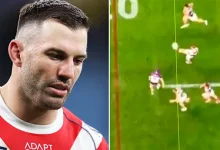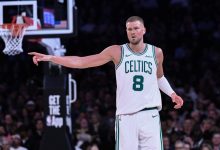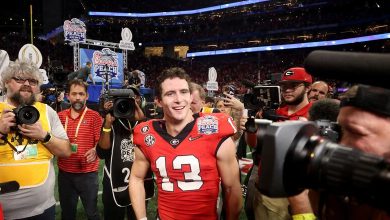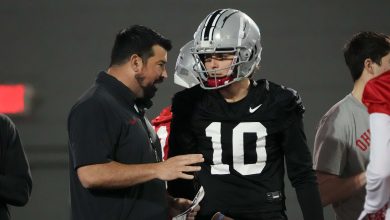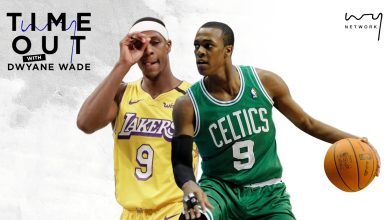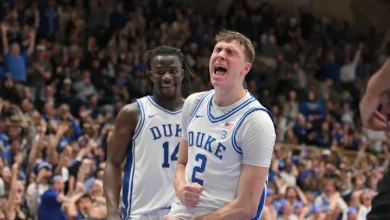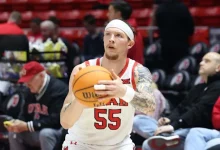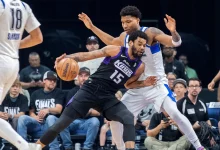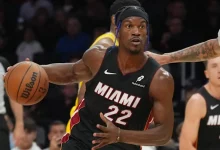Regarding the Mavericks’ comeback in the Luka Doncic-Lakers deal, Mark Cuban speaks out.
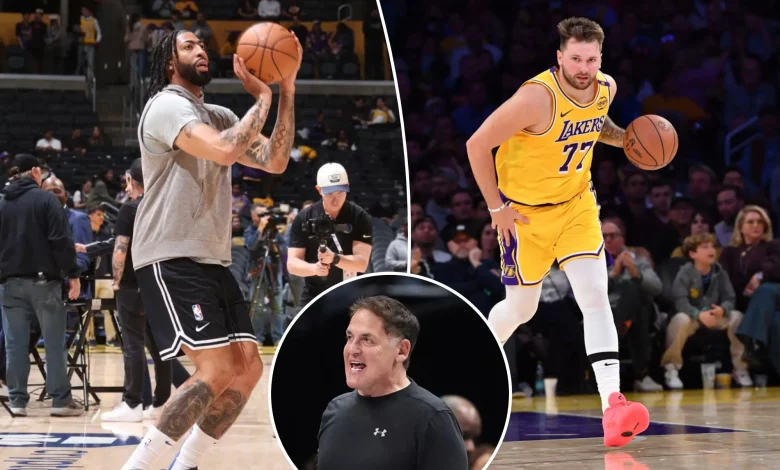
The Dallas Mavericks’ decision to trade their star player, Luka Dončić, to the Los Angeles Lakers in early February 2025 was met with widespread shock and criticism from fans, analysts, and former executives alike. The deal sent shockwaves throughout the NBA, signaling a shift in the trajectory of one of the league’s most promising franchises. Mark Cuban, the former majority owner of the Mavericks, has since expressed his disapproval of the trade, criticizing the return the team received for Dončić and questioning the direction of the franchise. Cuban, who sold the majority of his stake in the team but retained a minority interest, has been vocal about his frustrations with the decision. This article will explore Cuban’s comments, the reaction from Mavericks fans, the implications of the trade, and how the Mavericks have fared since parting ways with Dončić.
The Luka Dončić Trade: What Happened?
On February 1, 2025, the Mavericks made a shocking trade with the Los Angeles Lakers, sending their superstar Luka Dončić to the Lakers in exchange for Anthony Davis, Max Christie, and a 2029 first-round pick. The move was seen as a bold and unexpected one, considering Dončić’s status as one of the most dynamic young players in the NBA. At just 25 years old, Dončić had already established himself as a perennial MVP candidate and one of the league’s brightest stars. His ability to dominate games with his scoring, passing, and rebounding had made him the face of the Mavericks franchise.
In contrast, the return for Dončić was met with skepticism. Anthony Davis, while still a talented player, had struggled with injuries in recent seasons, and his prime years seemed to be behind him. Max Christie, the young Lakers guard included in the deal, showed promise but was unproven as a consistent contributor at the NBA level. Additionally, the 2029 first-round pick, while potentially valuable, was still years away from being a significant asset.
Mavericks fans, who had grown accustomed to seeing Dončić lead their team, were blindsided by the trade. The decision was even more jarring considering the Mavericks had made it clear that Dončić was their centerpiece player, and the future of the team revolved around his development. The trade was seen as a dramatic departure from the team’s previous strategy of building around their young star.
Cuban’s Initial Reaction
Mark Cuban, who had been the face of the Mavericks for over two decades, has always been known for his passionate involvement with the team. He was highly protective of Dončić, often praising his work ethic and leadership. Cuban had repeatedly expressed his commitment to surrounding Dončić with the right pieces to build a championship contender. So when news of the trade broke, it was a surprise not just to fans but also to Cuban himself.
In a recent interview, Cuban expressed his shock and disappointment with the trade. He made it clear that he felt the Mavericks could have secured a better return for Dončić. “You just don’t trade a player like Luka unless you’re getting something exceptional in return,” Cuban said. “We could have asked for more. We should have asked for more.”
Cuban was particularly critical of the lack of additional assets in the trade. He believed the Mavericks should have demanded multiple unprotected first-round picks, as well as perhaps a few more established players. “If you’re going to let go of a generational talent like Luka, you need a haul that sets you up for the future. A first-round pick in 2029 and some players who are either past their prime or unproven isn’t nearly enough,” Cuban argued.
The Fallout: Mavericks Fans React
The reaction from Mavericks fans to the trade was immediate and intense. Social media platforms exploded with anger, confusion, and disbelief as fans voiced their frustrations. Many fans felt betrayed by the decision to part ways with Dončić, who had become the heart and soul of the franchise. Dončić’s combination of skills and personality had made him a fan favorite, and the idea of him leaving Dallas was difficult for many to accept.
Protests quickly followed the announcement of the trade. Outside the American Airlines Center, where the Mavericks play their home games, fans gathered with signs that read “In Luka We Trust” and “Cuban, what are you doing?” Some fans even staged mock funerals, complete with coffins draped in Mavericks colors, to mourn the loss of their star player.
The backlash was not just confined to fans. Analysts and former players also criticized the Mavericks for making such a significant trade without securing a substantial return. The consensus was that the Mavericks had given up too much for too little in exchange. The lack of a clear plan for the team’s future added to the sense of uncertainty surrounding the organization.
Cuban’s Limited Involvement in the Trade
While Mark Cuban has been the face of the Mavericks for many years, his involvement in day-to-day operations had decreased following his decision to sell a majority stake in the team in 2023. Cuban sold 73% of the Mavericks to the Adelson family, retaining only a minority interest. This change in ownership structure has led to questions about Cuban’s influence on major decisions, such as trades and personnel moves.
In the case of the Luka Dončić trade, it appears that Cuban was not directly involved in the decision-making process. Former Mavericks player Chandler Parsons revealed in an interview that Cuban had sent him a brief text message upon hearing about the trade. The message, which read simply, “That makes two of us,” indicated Cuban’s surprise and confusion regarding the deal. The text further highlighted Cuban’s limited role in the process, as he had not been consulted extensively on the trade.
This revelation raised eyebrows among fans and media members, many of whom felt that Cuban, as the face of the Mavericks for so long, should have had a greater say in such a critical decision. Cuban’s response also underscored the growing divide between the new ownership group and the team’s long-time fans.
The Mavericks’ Struggles Post-Trade
Since the trade, the Mavericks have faced a series of challenges on the court. The team has struggled to maintain its previous level of performance, and they have lost three consecutive games, leaving them in a precarious position in the Western Conference standings. The absence of Dončić, who had been the team’s primary playmaker and scorer, has been keenly felt, and the team has yet to find a rhythm without him.
Injuries have further complicated matters. Anthony Davis, the centerpiece of the trade, has struggled with injuries throughout the season, limiting his ability to contribute consistently. Kyrie Irving, another key player for the Mavericks, has also been sidelined for several games due to various health issues. These injuries have left the team in a vulnerable position, and the Mavericks’ playoff hopes now appear uncertain.
Meanwhile, the young players acquired in the trade, including Max Christie, have yet to make a significant impact. Christie has shown flashes of potential but has been inconsistent in his performances, making it difficult for the Mavericks to assess whether he will be a long-term asset for the team. The 2029 first-round pick, of course, is still years away from being realized, and it remains unclear how it will fit into the team’s rebuilding plans.
Cuban’s Reflections on Ownership and Team Management
Despite his frustration with the trade, Cuban has expressed no regrets about selling his majority stake in the Mavericks. In recent interviews, he explained that the decision to sell was driven by personal reasons, rather than any dissatisfaction with the team or its direction. Cuban stated that he did not want to burden his children with the responsibilities of running the team, and thus, he felt it was time to step back and allow new ownership to take the reins.
While Cuban’s departure from day-to-day operations has clearly impacted the franchise, his comments reveal the complexities of being an owner in the NBA. Cuban had long been the face of the Mavericks, and his enthusiasm and personality had become synonymous with the team’s identity. However, as the team’s structure has shifted, so too have the dynamics of decision-making within the organization.
The Mavericks’ Future in Uncertainty
The trade of Luka Dončić to the Los Angeles Lakers marks a turning point in the history of the Dallas Mavericks. The decision to part ways with their star player has led to a series of questions regarding the future of the team, its management, and its relationship with fans. Mark Cuban’s criticism of the trade highlights his dissatisfaction with the current direction of the franchise, and his limited involvement in the decision-making process raises concerns about the level of control the new ownership group has over key decisions.
As the season progresses, the Mavericks will need to address both their on-court performance and their relationship with fans to recover from the fallout of this controversial trade. Whether the team can recover and rebuild without Dončić remains to be seen, but one thing is clear: the Mavericks are entering a new era, and it will be a challenging road ahead.

